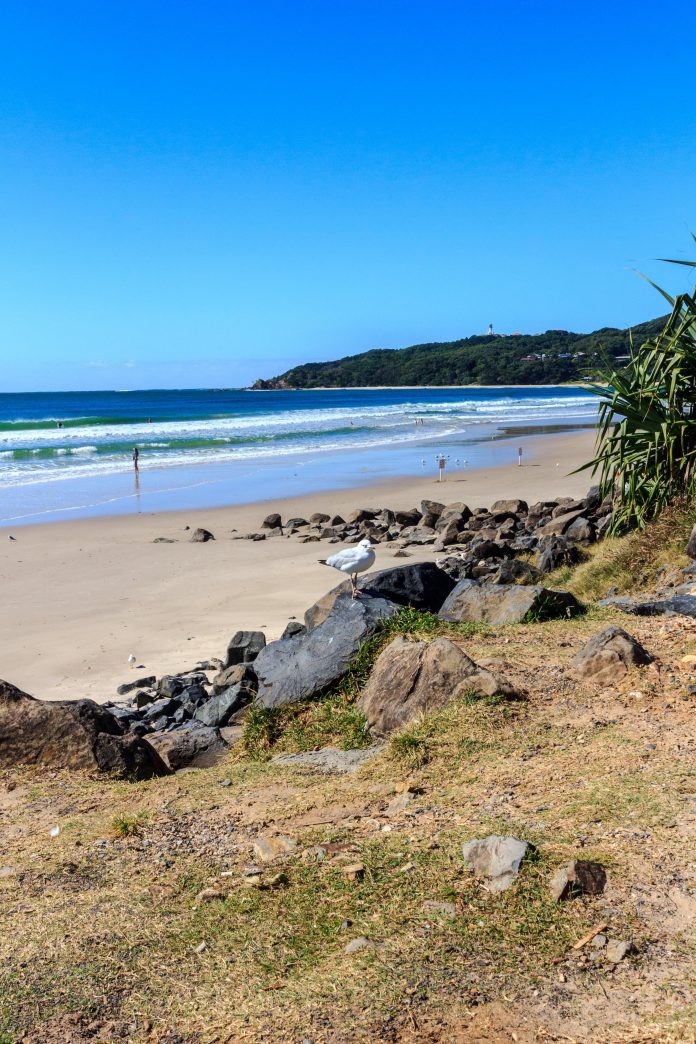AUSTRALIA’S famous Byron Bay has “vanished for good” after severe storms threatened several tourist spots, authorities have said.
Main Beach, a popular tourist destination in New South Wales, was washed away with trees and a concrete walkway collapsing into the sea.
Local mayor Simon Richardson said “severe weather” and “massive swells” were destroying what was left.
He said: “We’re watching our beach disappear.”
Heavy downpours and strong winds have battered the bay, bringing more than 27 inches of rain over 48 hours.
The mayor added: “What we’ve got here is yet another event. An extreme weather event coming on the back of climate change that our community’s dealing with.
SEVERE WEATHER
“It’s about the fourth or fifth major event in the last couple of years.”
A 620 mile (1,000km) stretch of coast has been hit with torrential rain and “abnormally high” tides.
And 2,000 homes in cities including Brisbane lost electricity on Monday due to strong winds.
Many beaches were closed due to dangerous weather conditions.
Australia’s Bureau of Meteorology warned coastal erosion, hazardous rain and huge waves off the coast would continue until Tuesday.
Meteorologist Dean Narramore said: “Major coastal erosion is ongoing along numerous beaches in northeast NSW and southeast Queensland as spring tides combined with large waves and gale force easterly winds eat away sand from beaches.”
The wild weather has hit popular tourist spots such as the Sunshine Coast and the Gold Coast in Queensland.
Surf Life Saving NSW CEO Steve Pearce said: “We’re seeing the largest coastal erosion we’ve seen in many years, particularly around the Byron Bay area, which is completely changing the entire landscape of the beaches.”
They also warned of dangerous surfing conditions due to the severe weather and have asked surfers to stay out of the water.
Resident Michael Deeny said he had never seen the beach stripped of so much sand.
He said: “It looks like it’s been hollowed out, it really is incredible.”
Mark Ryan, the Queensland emergency services minister, told ABC News that the impact from the weather event “will be similar to a category-one cyclone eventâ€.
Meteorologists have warned there will be more showers and storms next week with severe weather conditions continuing up until Christmas.


















